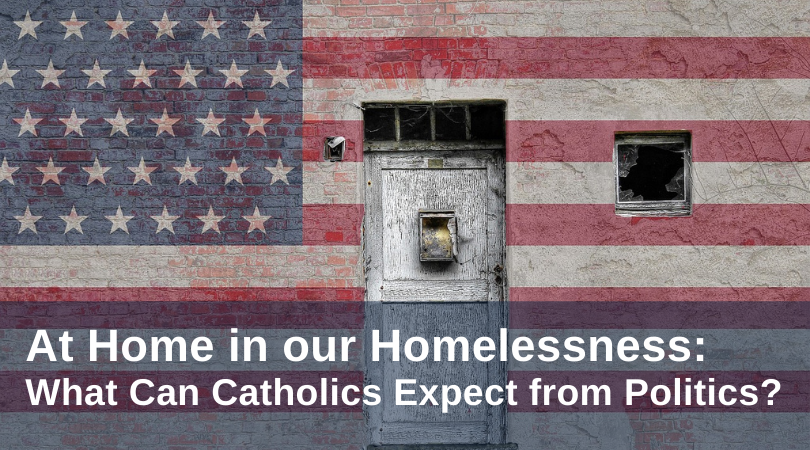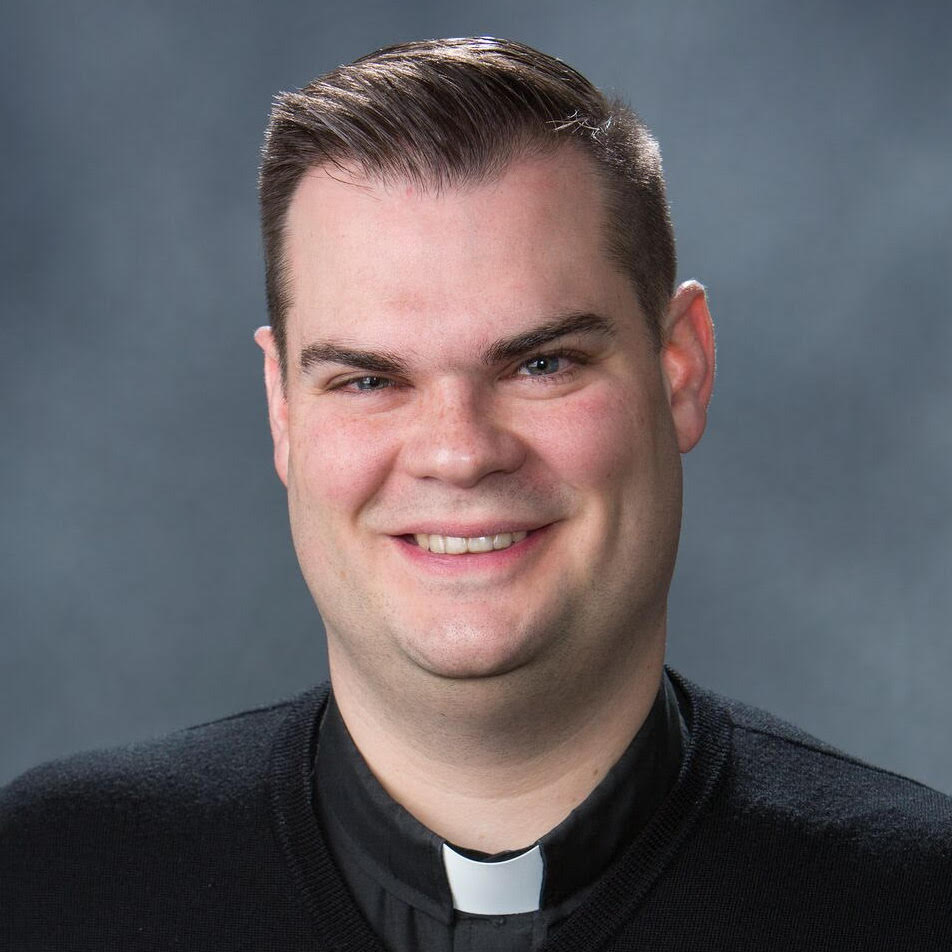
We’ve considered some problems with our contemporary political discourse and made some suggestions about how a “Catholic political discourse” can improve the present situation. We are left to consider: At the end of the day, what can the Catholic truly expect from politics? The great American Catholic writer Walker Percy answers this question best by suggesting that humans both must learn to be at home in their homelessness and find some rootedness in imperfect communities.
Let’s return to Odysseus. In examining the distinctiveness of a Catholic political discourse, we considered his experience:
The worst thing humans suffer is homelessness;
we must endure this life because of desperate hunger;
we endure, as migrants with no home.
(Homer, The Odyssey, trans. Emily Wilson, xv.343–346)
But an important aspect of Odysseus’s wandering is the hospitality (or lack thereof) that some extend towards him and his crew along the way. Xenia, hospitality or ‘guest-friendship,’ is an important theme in Odyssey because, among other things, it provides a respite from the difficulties and dangers of the journey. Hopefully, we have all experienced the joy of good food, drink, and conversation among friends that acts as a salve for the hardships of life. Such experiences are essential for the pilgrim. They do not change the status of the wanderer as wanderer, but these experiences provide us with a temporary home in the midst of wandering.
The importance of such experiences takes on even greater significance in Christianity. Thomas Aquinas defines charity, the greatest of all virtues and the epitome of the Christian life, as friendship (ST II-IIae q. 23 a. 1). It should come as no surprise that the Sacrament of Charity, the Eucharist, takes place within the context of a meal! Friendship, Aquinas claims, is when we love someone so as to will the good for him. The great radicality of Christianity consists in the belief that a transcendent God reaches out his hand in friendship to flesh-and-blood humans. But Aquinas is very clear that the friendship of humanity for God necessarily includes friendship for other people (ST II-IIae q. 25 a.1). So, rather than acting as only a temporary salve, true friendship offers us access to God Almighty. Friendship must be the starting point for any consideration of what the Christian can hope for from politics.
Friendship can only occur between persons, not abstractions; thus, all real politics is local. We should strive to build up our local communities and attachments—beginning with the family—so as to secure some degree of rootedness in the midst of our migration. It is not too much for the Catholic to hope for politics to provide some hospitality along the way to his true home. But it is not enough for the Catholic only to ask what she can hope from politics. All of us need to shoulder the load of political responsibility and dedicate ourselves to creating local communities that are hospitable. Excessive focus on national and even state politics can prove a costly distraction from the work that needs to be done in our churches, schools, town halls, farmers’ markets, bowling alleys, etc.
Of course, the Christian can not and should not confuse the City of God with the city of man by striving for complete solutions. In other words, we should resist the temptation to fashion these communities in an overly idealistic way. Percy provides the framework. At the end of his apocalyptic novel, Love in the Ruins, Percy’s protagonist, Dr. Tom More, explains his decision to remain in his hometown of Feliciana Parish:
I stayed because it’s home and I like its easygoing ways, its religious confusion, racial hodgepodge, misty green woods, and sleepy bayous. People still stop and help strangers lying in ditches having been set upon by thieves or just plain drunk. Good nature usually prevails, even between enemies. As the saying goes in Louisiana: you may be a son of a [b*tch] but you’re my son of a [b*tch]. (Love in the Ruins, 386)
As long as we are homeless in the city of man, we should not expect to find complete comfort, security, or knowledge. Ambiguity abounds. But such confusion can be an ally, rather than an enemy, if we allow it to remind us of our fundamental status as pilgrims on a journey. Still, by humbling the ends of our politics, by demanding it provide some hospitality along the way, we enable our communities to become places where we can experience God.
Like what you read? Submit your email below to have our newest blogs delivered directly to your inbox each week.
Featured image by Angela Yuriko Smith via Pixabay.


